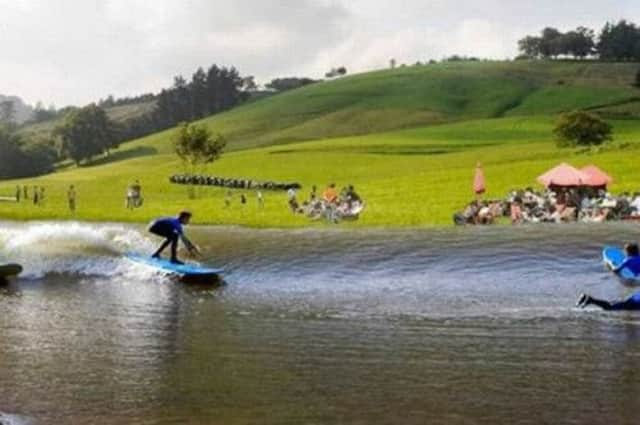Roger Cox: ‘An artificial wave park should be heaven for surfers. So why do I feel uneasy about it?’


A company called Conwy Adventure Leisure Ltd has recently been granted planning permission to build a giant wave pool called Surf Snowdonia on the site of a former aluminium factory at Dolgarrog in the Conwy Valley.
Using so-called Wavegarden technology, it will be able to create endlessly peeling freshwater waves up to 6ft high, and it will be able to vary the size and speed of said waves to suit the clientele. Never been surfing before? No problem: it will serve up friendly little ankle-slappers for you to practise on to your heart’s content. Looking to nail your frontside air-reverse? It will be able to help out with that, too. Exactly how fast and how hollow would sir like his liquid launch pads today?
Advertisement
Hide AdAs a surfer – even one living a long way away from Wales – I should be over the moon about all this, and yet somehow the concept of an artificial wave park leaves me feeling, well, let’s say a little conflicted.
Do I like the idea of going on a surf trip where good waves are 100 per cent guaranteed? Yes, of course. Travelling for hours (or even days) only to find the epic swell you were chasing has already been and gone is never a recipe for fun times.
Do I like the idea of being able to surf exactly the kind of waves I feel like, whenever I feel like it? Hell yes. Like Goldilocks, surfers only get what they want about a third of the time, and that’s if they’re lucky. Usually we end up settling for waves that are either too fast or too slow, too shifty or too mushy. Only very, very occasionally are they juuuust right. Is it possible to object to Surf Snowdonia on moral grounds? Nope, not really. It’s being built on a brownfield site, so no pristine wilderness is at risk, and it will be a boon to the local economy, too, providing 135 jobs during construction and 60 full-time jobs once it’s up and running – which, incidentally, could be as soon as next summer. Oh, and it will almost certainly lead to lots of people getting into surfing who might otherwise have lived their whole lives without experiencing the sweet rush of acceleration you get as you slide down the face of a wave. Any way you slice it, then, Surf Snowdonia is a Very Good Thing. So why does it make me feel so uneasy?
I couldn’t quite put my finger on the problem until I read the following statement from Steve Davies, managing director of Conwy Adventure Leisure: “Surfing is currently virtually inaccessible to members of the general public,” he said. “They either see black dots on the horizon from the top of a beach, or see it on TV. For the first time [at Surf Snowdonia] people will be able to watch a surfer actually travel past them from left to right and vice versa.”
Aye, there’s the rub. Most surfers I know don’t have a problem with their sport being “virtually inaccessible to the general public.” In fact, that’s one of the things they like about it. Part of surfing’s allure is the way it allows you to unplug yourself from the rest of human civilisation for a few hours. As long as you’re in the water you’re off the grid, off the map. If somebody back on land wants to talk to you – even if it’s really, really urgent – they’ll just have to stand on the beach shouting and waving until you spot them, then wait for you to make your way to shore. Surfing, almost by its definition, is something that happens “out there”. Put it in a glass case – make it a sideshow attraction for landlubbers sipping lattes in a brand new branch of Starbucks – and you’re kinda killing the mystique.
Climbers, I suppose, went through all these emotions a generation or-so ago, when the first indoor climbing walls started springing up, and they seem to have come through the experience without too much in the way of mental scarring. In the end, climbing walls didn’t stop people climbing mountains – they just made them better at it, and I suspect the same will be true of artificial waves. Today’s premier saltwater surf spots will still be ridden in the future – it’s just that the surfers of Generation Wavegarden will be pulling tricks on them that their Luddite ancestors couldn’t even imagine.